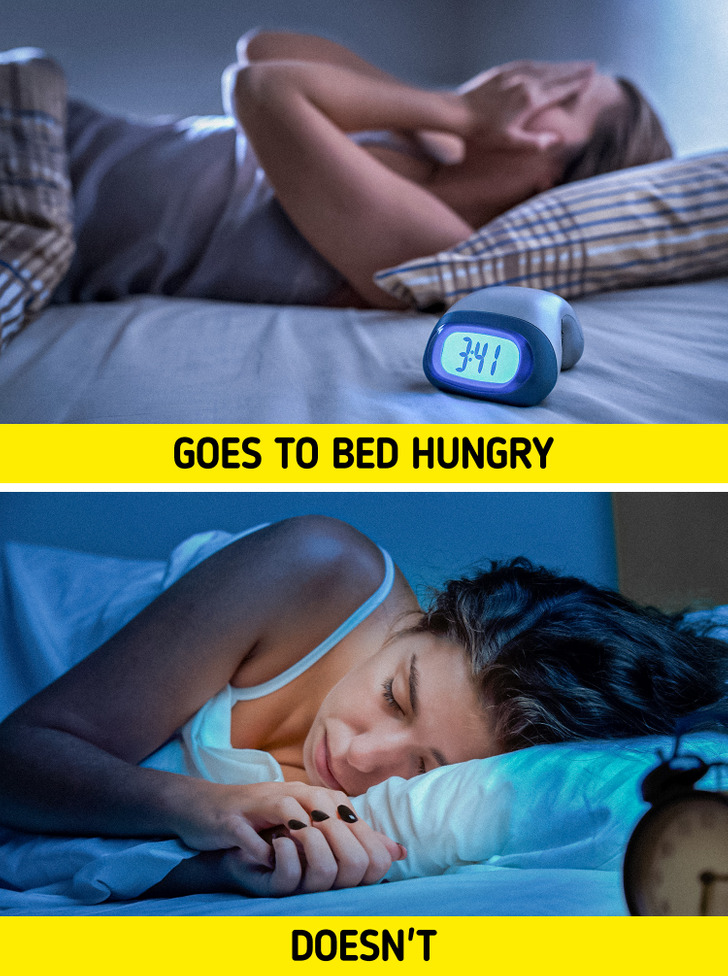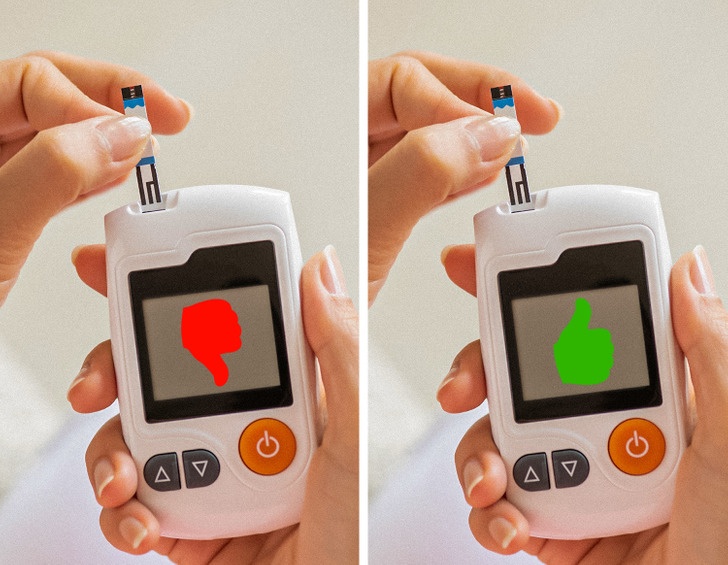Late-night eating often gets a bad reputation, but what happens when you eat before going to bed might be more beneficial than you think. In this comprehensive guide, we explore the surprising ways that a well-planned bedtime snack can positively impact your health. From potentially aiding in weight loss and improving sleep quality to helping maintain stable blood sugar levels and preserving muscle mass, the timing and type of food you consume before bed can play a crucial role in your overall wellness.
For more scientific perspectives and expert advice, consider reviewing related content on Harvard Health Publishing and Mayo Clinic.
Is Eating Before Bed Good for You, or Bad?
It Might Help You Lose Weight: The Role of Bedtime Snacks in Weight Management

Contrary to popular belief, eating before bed does not necessarily lead to weight gain. In fact, the right kind of snack can actually support your weight loss efforts.
Regulating Metabolism
Eating a balanced snack before bedtime can help regulate your metabolism by preventing your body from going into starvation mode. When you skip meals or go to bed hungry, your metabolism may slow down to conserve energy, which can make it harder to lose weight. A light, nutrient-dense snack can keep your metabolism active overnight.
Preventing Late-Night Cravings
When you have a small, healthy snack before bed, you may be less likely to wake up in the middle of the night with intense hunger pangs. This proactive approach can help curb overeating during the early hours of the morning and prevent impulsive, unhealthy food choices.
Optimizing Hormone Levels
Consuming a balanced snack that includes protein and healthy fats may support the regulation of hormones such as leptin and ghrelin, which are responsible for signaling satiety and hunger. This hormonal balance is crucial for long-term weight management.
For more tips on weight loss and metabolism, check out insights from WebMD’s weight loss section.
You May Sleep Better: Enhancing Sleep Quality With a Smart Bedtime Snack

A common issue for many is disrupted sleep, often linked to hunger or unstable blood sugar levels during the night. Strategic eating before bed can promote a more restful night’s sleep.
Stabilizing Blood Sugar Overnight
When blood sugar levels drop during the night, it can lead to poor sleep quality and early awakening. A small snack containing complex carbohydrates paired with protein can help maintain stable blood sugar levels throughout the night, reducing the likelihood of sleep disturbances.
Promoting Serotonin and Melatonin Production
Certain foods, such as those rich in tryptophan (e.g., turkey, nuts, and seeds), can boost the production of serotonin—a neurotransmitter that helps regulate mood—and melatonin, the hormone responsible for sleep regulation. An evening snack that includes these nutrients may help signal to your body that it’s time to wind down.
Reducing Insomnia Symptoms
For some individuals, a light snack before bed can actually reduce symptoms of insomnia. By avoiding a completely empty stomach, you may find that falling and staying asleep becomes easier, contributing to improved overall sleep quality.
For further reading on sleep and nutrition, explore resources from the Sleep Foundation.
It Helps To Keep Your Blood Sugar In Balance: The Metabolic Benefits of a Bedtime Snack

Maintaining balanced blood sugar levels is essential for overall health, and what you eat before bed can play an important role in this process.
Preventing Hypoglycemia
Hypoglycemia, or low blood sugar, can be dangerous and lead to symptoms like dizziness, fatigue, and irritability. A small, balanced snack before bed can help maintain blood sugar levels, preventing these episodes during the night.
Enhancing Insulin Sensitivity
Some studies suggest that the timing of meals, including a bedtime snack, may influence insulin sensitivity. Eating a balanced snack in the evening could improve your body’s ability to process glucose efficiently, which is particularly beneficial for individuals managing diabetes or prediabetes.
Supporting Overall Metabolic Health
By ensuring that your body has a steady supply of nutrients throughout the night, you’re supporting metabolic functions that work around the clock. This consistent energy supply can help regulate not only blood sugar levels but also other hormones related to appetite and energy balance.
For more detailed advice on managing blood sugar through diet, visit Mayo Clinic’s diabetes management page.
It Might Help You Maintain Muscle Mass: Fueling Recovery and Growth Overnight

Your body works tirelessly to repair and build muscle tissue, especially during sleep. Eating before bed can provide essential nutrients that support muscle maintenance and growth.
Providing Protein for Muscle Repair
During sleep, your body enters a state of recovery where muscle repair is prioritized. Consuming a protein-rich snack before bed can supply the necessary amino acids needed for muscle synthesis and repair. This is particularly beneficial for athletes or anyone engaged in regular strength training.
Preventing Muscle Breakdown
A nighttime snack that includes slow-digesting protein sources, such as casein found in dairy products, can help prevent muscle breakdown. As your body enters a fasting state overnight, the continuous release of amino acids can help preserve lean muscle mass.
Supporting Overall Recovery
Beyond muscle repair, a balanced snack containing protein, healthy fats, and complex carbohydrates provides the energy needed to support the body’s natural recovery processes. This comprehensive approach to nutrition not only aids in maintaining muscle mass but also enhances overall physical performance.
For more on the benefits of nighttime nutrition for muscle recovery, refer to articles on Bodybuilding.com.
Additional Considerations: What to Eat and What to Avoid Before Bed
While eating before bed can offer multiple benefits, it’s important to choose the right foods to maximize these effects. Not all snacks are created equal, and some choices may actually hinder your health goals.
Ideal Foods for a Bedtime Snack
- Lean Proteins: Options such as Greek yogurt, cottage cheese, or a small serving of lean turkey are excellent sources of protein that aid in muscle repair and satiety.
- Complex Carbohydrates: Foods like whole-grain crackers or a small serving of oatmeal provide sustained energy without causing a spike in blood sugar.
- Healthy Fats: A handful of nuts or a slice of avocado can offer healthy fats that support hormone production and overall wellness.
- Fruits and Vegetables: A small serving of berries or a few slices of apple paired with a protein source can add essential vitamins and antioxidants to your diet.
Foods to Avoid
- High-Sugar Snacks: Foods high in refined sugars can cause a rapid increase in blood sugar, followed by a crash that may disrupt sleep.
- Heavy, Greasy Meals: Consuming large, fatty meals close to bedtime can lead to digestive discomfort and hinder sleep quality.
- Caffeinated Products: Caffeine is a stimulant that can interfere with the natural sleep cycle, so it’s best to avoid coffee, chocolate, or energy drinks in the evening.
For more nutritional guidelines on nighttime eating, consult resources such as Harvard T.H. Chan School of Public Health.
How to Integrate Bedtime Eating Into a Healthy Lifestyle
Successfully incorporating a bedtime snack into your daily routine requires a balanced approach that fits your overall lifestyle and dietary habits.
Establish a Consistent Routine
Having a consistent eating schedule can help your body adjust to the new routine and optimize the benefits of your nighttime snack. Try to have your snack at the same time each night to support your circadian rhythm.
Listen to Your Body
Not everyone responds the same way to eating before bed. Pay attention to how your body reacts—if you notice improved sleep, enhanced energy levels, or better muscle recovery, you’re likely on the right track. Adjust the portion size and composition of your snack based on your personal needs and goals.
Combine With a Healthy Overall Diet
A bedtime snack should complement a balanced diet throughout the day. Focus on whole foods, lean proteins, complex carbohydrates, and plenty of fruits and vegetables to support overall health. Regular physical activity and adequate hydration are also key components of a healthy lifestyle.
For more strategies on building a balanced diet and healthy habits, explore tips from Healthline.
Conclusion: Unlocking the Potential of Nighttime Nutrition
Eating before bed, when done correctly, offers a range of surprising benefits—from weight management and improved sleep quality to balanced blood sugar levels and muscle maintenance. The key lies in choosing nutrient-dense foods that support your body’s natural processes while avoiding those that can cause disruptions.
By understanding how a small, well-planned snack can regulate your metabolism, enhance recovery, and stabilize energy levels throughout the night, you can turn an often misunderstood practice into a powerful tool for overall wellness. Whether your goal is to lose weight, sleep better, or maintain muscle mass, integrating a smart bedtime snack into your daily routine could be the missing piece of your health puzzle.
Remember, the timing, quality, and quantity of your nighttime snack are all critical factors. Experiment with different food combinations, listen to your body, and adjust your routine to find what works best for you. Embrace the potential of nighttime nutrition as part of your holistic approach to health and well-being.
For further information and expert advice on nutrition and lifestyle habits, consider checking out reputable sources such as Mayo Clinic and WebMD. Your journey to better health starts with informed choices—so why not harness the benefits of a smart bedtime snack for a healthier, more energetic tomorrow?
This article is for informational purposes only and should not be considered medical advice. Always consult with a healthcare professional before making significant changes to your diet or lifestyle.
Preview photo credit Unsplash.com









